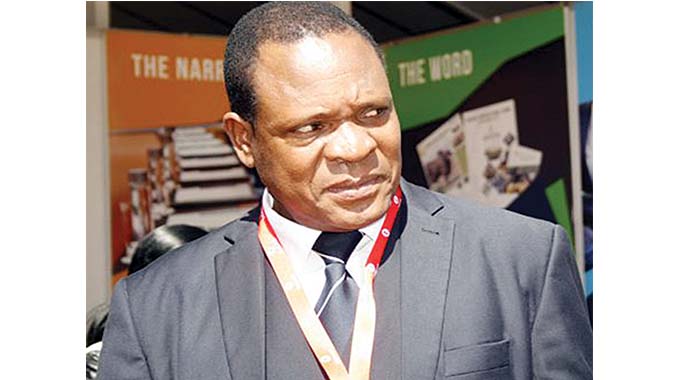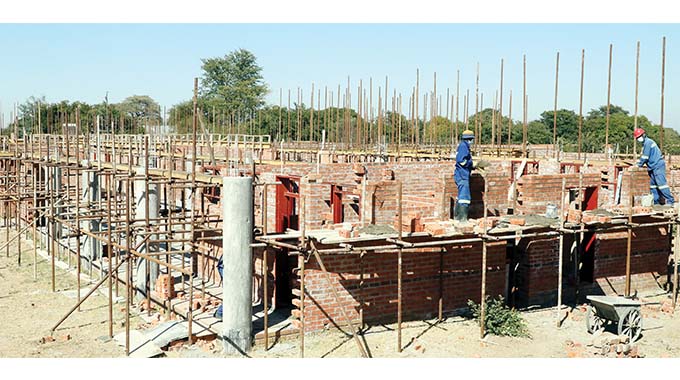Minister laments Covid-19 impact on GDP growth

Mashudu Netsianda, Senior Reporter
BULAWAYO Provincial Affairs Minister Judith Ncube yesterday said Covid-19 has seriously affected operations of businesses in the city and in the process negatively impacting on the metropolitan province’s Gross Domestic Product (GDP) growth rate.
Although the city remains the country’s industrial hub and has been declared a Special Economic Zone (SEZ) for manufacturing, several firms are struggling amid operational challenges and high costs.
Due to the impact of Covid-19, forex shortages and incessant power cuts, capacity utilisation for most companies has dropped sharply.
Minister Ncube visited Life Gear Trading factory as part of a familiarisation tour to assess how industry is operating under the Covid-19 pandemic.
“The economic base of Bulawayo is the industry and we are therefore engaging other stakeholders and discussing issues that will increase our GDP (Gross Domestic Product) as a province. We are engaging different ministries and individuals as we want to bring economic players together so that we can sit down, reflect and see whether we are achieving our goals as far as devolution and attainment of Vision 2030 is concerned,” she said.
Under the Second Republic, President Mnangagwa has anchored his economic reform on devolution. This has led to the effort to identify key provincial strengths to support and build the local economy on, with each province having its own Gross Domestic Product (GDP). The idea is for provinces to spearhead the economic transformation of their areas, and then ultimately help the national economy grow.
Devolution is provided for in Chapter 14 of the Constitution, with its main goal being the equitable allocation of national resources and the participation of local communities in the determination of development priorities within their areas.
It entails that provinces should have economic and social indicators to track their development in terms of productivity, employment creation, export earnings and import substitution initiatives as part of the periodic provincial reports and briefs they present.
President Mnangagwa recently met the country’s 10 Ministers of State for Provincial Affairs at State House in Harare to discuss progress in devolution and provincial growth, and lay down the policy priorities in line with Vision 2030.
He said the provincial ministers were important in the implementation of Government programmes and policies hence they must facilitate development in the context of national priorities and resources in their provinces.
The President challenged them to take advantage of their competitive advantages in crafting their development policies, paying attention to strategies that promote production and value addition. Life Gear Trading, whose backbone is the clothing industry, manufactures buttons, door grommets, electric insulators, drawer handles, roof seals and plastic lids, which it supplies to local brewery companies.
Although the company still uses obsolete machinery last replaced in the early 1980s, they are producing an average of 10 million buttons per month.
Minister Ncube urged the company to consider venturing into partnerships to expand.
“This is a local company, which is not only the sole manufacturer of buttons in the country, but also our pride as Bulawayo. The company needs our support but unfortunately as Zimbabweans we don’t seem to be proud of our own products but prefer foreign products,” she said.
Minister Ncube said Life Gear Trading has a potential to grow with the possibility of reclaiming its foreign market share if it gets the required financial support and modernise.
“They last bought their new machine in the early 1980s, but they are still in business. However, what the company needs to do is to engage with the Ministry of Industry and Commerce so that they can explore ways of assisting this company,” she said.
“This is a very big factory and we urge the company directors to also consider engaging partners so that they are able to strengthen, reorganise and resuscitate the company through acquiring new technology.”
While a majority of companies in Zimbabwe have either shut down or scaled down operations in the wake of covid-19, the country’s sole button manufacturer, Life Gear Trading has, however, managed to shrug off the impact of the global pandemic, among other challenges.
Besides the effects of Covid-19, the Bulawayo-based company, formerly Coronet Buttons, has been operating at 10 percent capacity largely due to shortage of foreign currency to source critical raw materials, chemicals and spare parts, which are sourced from South Africa and Italy.
Life Gear Trading general manager, Mr Mzingaye Mdlauzo said as a result of improved capacity utilisation, his company was now generating about $150 000 per month in revenue. He said the slight increase in capacity utilisation was driven by foreign currency shortages that have seen local companies which used to import the buttons turning to the local supplier.
“We are struggling to achieve optimum production targets due to few orders although some companies that used to import buttons from outside the country are now buying from us hence a slight increase in demand for our products,” said Mr Mdlauzo.
In the past, the button manufacturer has appealed to Government to impose a ban on the importation of buttons saying it had the capacity to meet local demand.
Mr Mdlauzo said his organisation was also not spared from the adverse effects of foreign currency shortages as they also import spare parts and critical raw materials such as chemicals from South Africa and Italy respectively. The company employs 26 workers at its factory in Belmont.
Mr Mdlauzo said the company needs at least US$150 000 capital injection to enable it to expand its operations as well as buy state-of-the-art equipment.
At its peak, the company was one of the key industries in Bulawayo employing close to 500 people. The company also used to supply markets in Zambia, Mozambique and Malawi. — @mashnets












Comments